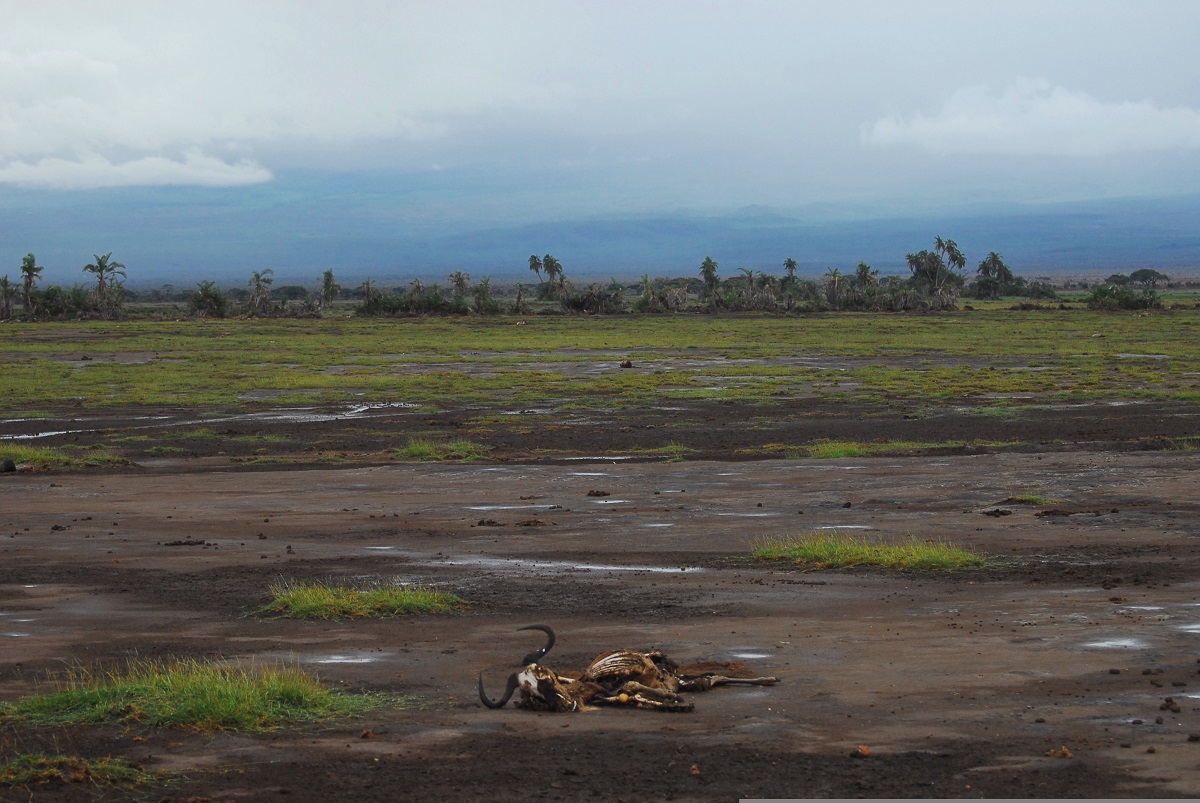
“Humanity today faces a severe and unprecedented climate crisis with devastating consequences for people, nature and the economy,” stated the Calouste Gulbenkian Foundation when they launched their ‘Prize for Humanity’ in 2020 – with the aim of “distinguishing those persons and organisations from around the world whose work has greatly contributed to mitigating the impacts of climate change”.
This year, the prestigious prize, worth €1 million, has been awarded jointly to two international bodies dedicated to assessing scientific research on the global environment and synthesising that research for the use of policymakers: the Intergovernmental Science-Policy Platform on Biodiversity and Ecosystem Services (IPBES) and the Intergovernmental Panel on Climate Change (IPCC). Previous recipients of the prize include Greta Thunberg in 2020 and the Global Covenant of Mayors for Climate & Energy in 2021.
NRI staff have made important contributions to the work of IPBES and the IPCC in recent years, most especially as authors and contributors to their landmark assessments on the status of climate change and nature. Such assessments play a key role in informing governments and a wide range of stakeholders around the world on the scale and nature of the challenges posed by climate change and nature emergencies, which are caused by and contribute to social inequalities and present an existential threat to humanity, as well as potential solutions. To do this, NRI staff draw upon their natural science, social science and humanities expertise, and practical experience of engaging policymakers.
IPBES is an independent body established in 2012 to strengthen the science-policy interface for biodiversity and ecosystem services for the conservation and sustainable use of biodiversity, long-term human well-being and sustainable development. NRI staff are closely involved with this work:
- Professor Valerie Nelson is currently serving as a Lead Author in the IPBES Thematic Assessment of the underlying causes of biodiversity loss and the determinants of transformative change and options for achieving the 2050 Vision for Biodiversity, Chapter 4 – Overcoming the Challenges of Achieving Transformative Change Towards a Sustainable World. She is part of the Indigenous and Local Knowledge Liaison Group for the Transformative Change Assessment, and a member of the Impact Group, which is working to amplify the real-world impact of the Transformative Change Assessment Report which is due in 2024.
- Valerie acted as a nominated Expert on the Methodological Assessment of the Impact and Dependence of Business on Biodiversity and Nature’s Contributions to People, also known as the Business and Biodiversity (2021) Scoping Study.
- In 2019, Valerie served as a Contributing Author on Chapter 5 – The Role of Diverse Values of Nature in Visioning and Transforming Towards Just and Sustainable Futures of the IPBES 2022 ‘Values Assessment’, providing comparative analyses of different visions and values of nature from private sector actors and alternative economy movements.
- Dr Truly Santika participated in the 2021 workshop on modelling Nature Futures scenarios and acted as a reviewer for the Scoping Reports for the Nexus and Transformative Change Assessments for IPBES-8.
IPCC, created in 1988, is the United Nations body for assessing the science related to climate change, providing regular assessments of the scientific basis of climate change, its impacts and future risks, and options for adaptation and mitigation. The IPCC was awarded the Nobel Peace Prize in 2007. Since that time:
- Professor John Morton served as Coordinating Lead Author for the chapter on Rural Areas in Volume II (Impacts, Adaptation and Vulnerability) of the 2014 Fifth Assessment Report. Professor Jeremy Haggar served as a Contributing Author for the same chapter.
- Professor John Porter (now an NRI Visiting Professor) served as Coordinating Lead Author for the Chapter on Food Security and Food Production Systems for the same report, as a Contributing Author for the chapter on Agriculture, Forestry and Other Land Use of Volume III (Mitigation of Climate Change), and as an Expert Reviewer for the Synthesis Report.
- John Morton and John Porter were both invited participants in the 2017 Scoping Meeting for the IPCC’s Special Report on Climate Change and Land (published 2019). John Morton subsequently served as Lead Author on the chapter on Risk Management and Decision-Making in Relation to Sustainable Development, and John Porter served as a Review Editor. NRI’s Professor Julian Quan and Dr Laxmi Pant served as Contributing Authors on the same report.
Links:
IPBES reports and assessments:
- ‘Values Assessment’
- Information on the Business and Biodiversity Scoping Assessment
- Transformative Change assessment

